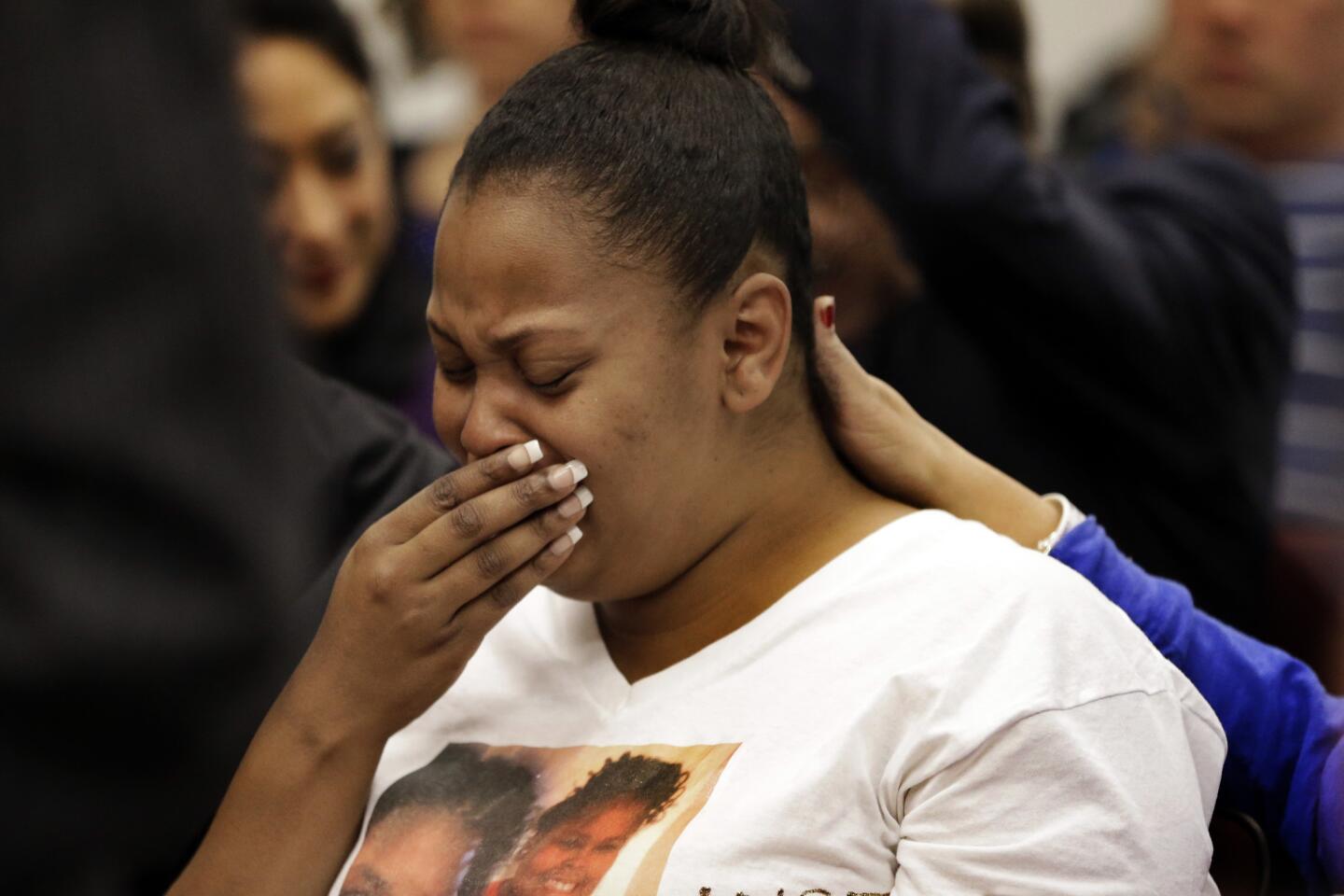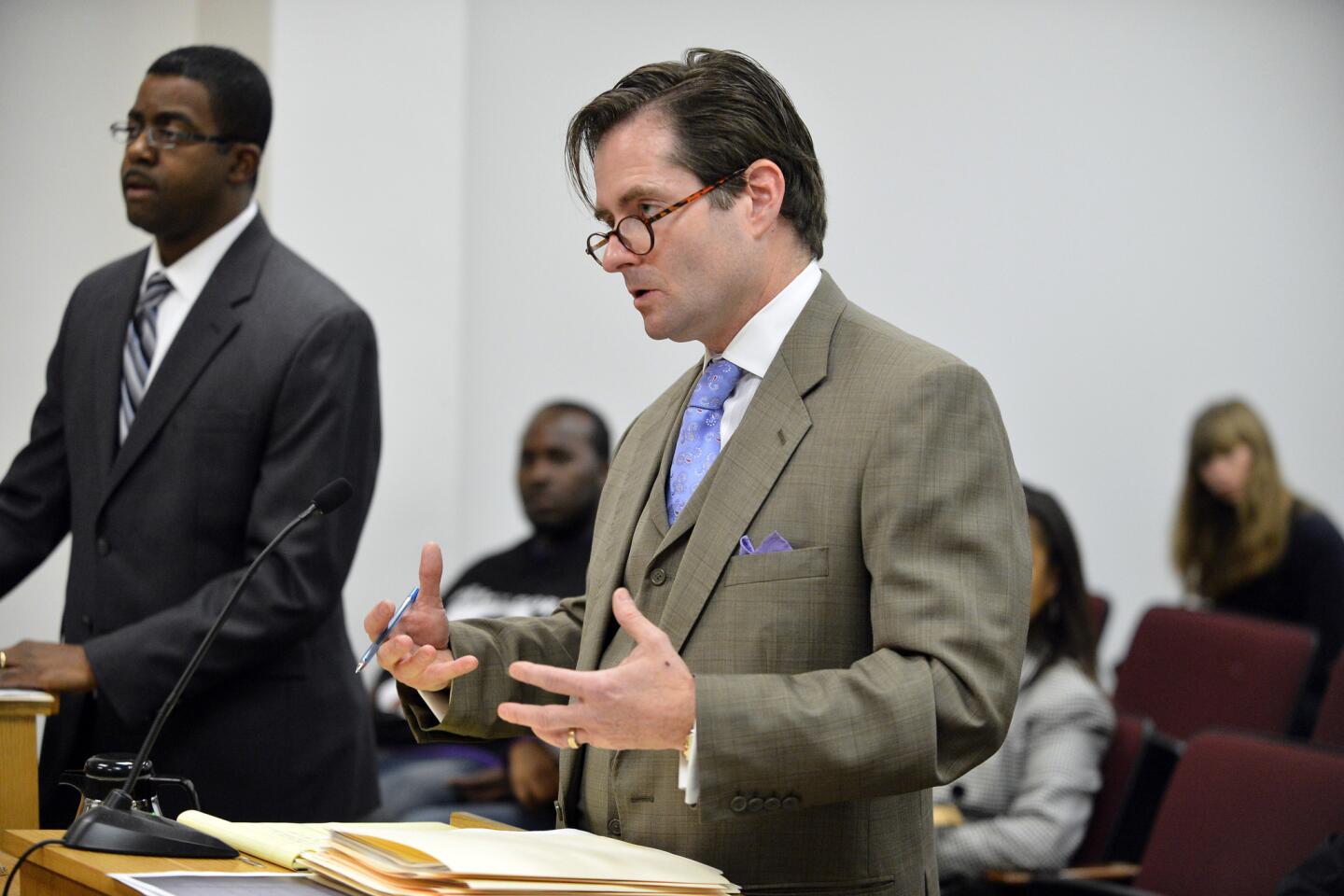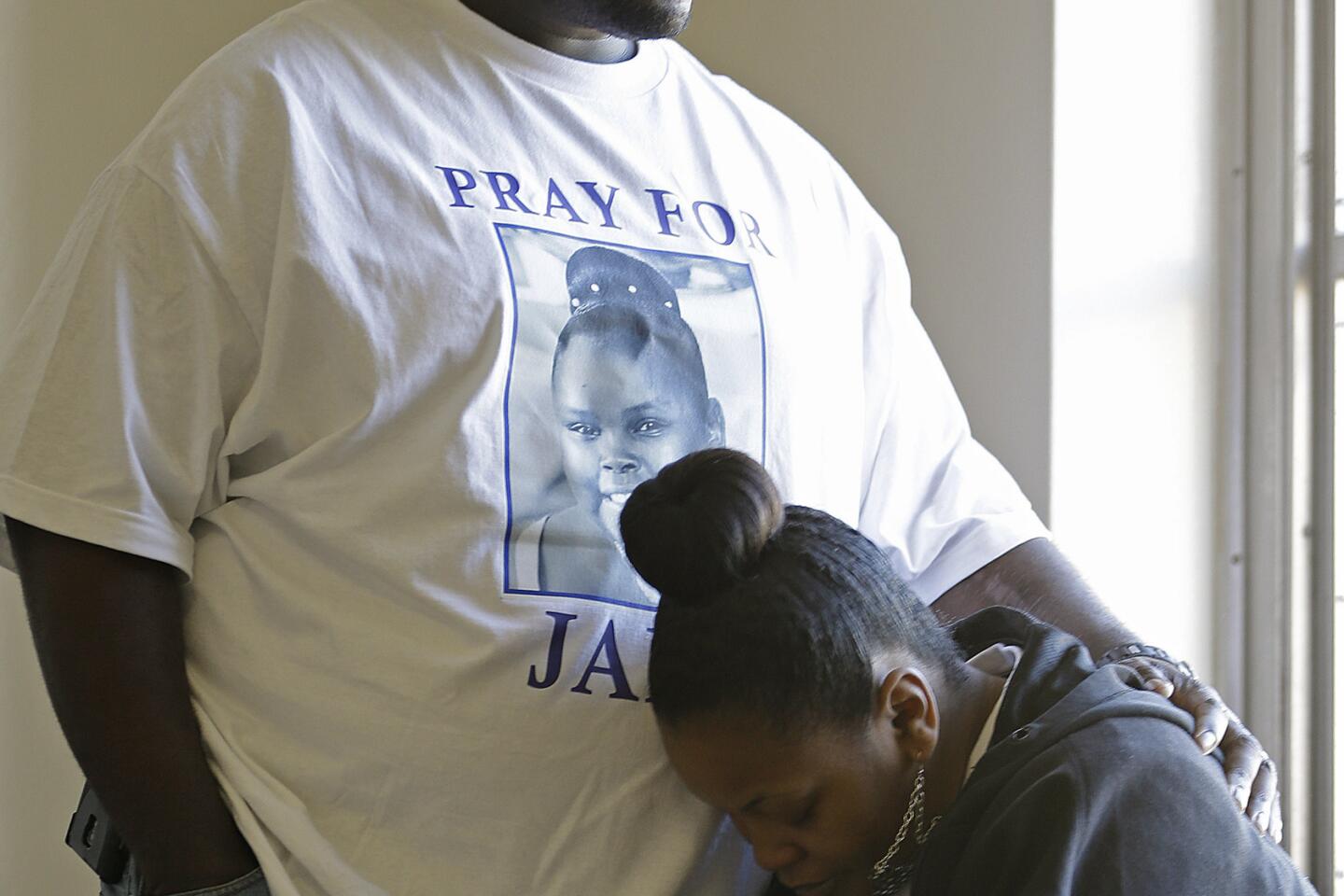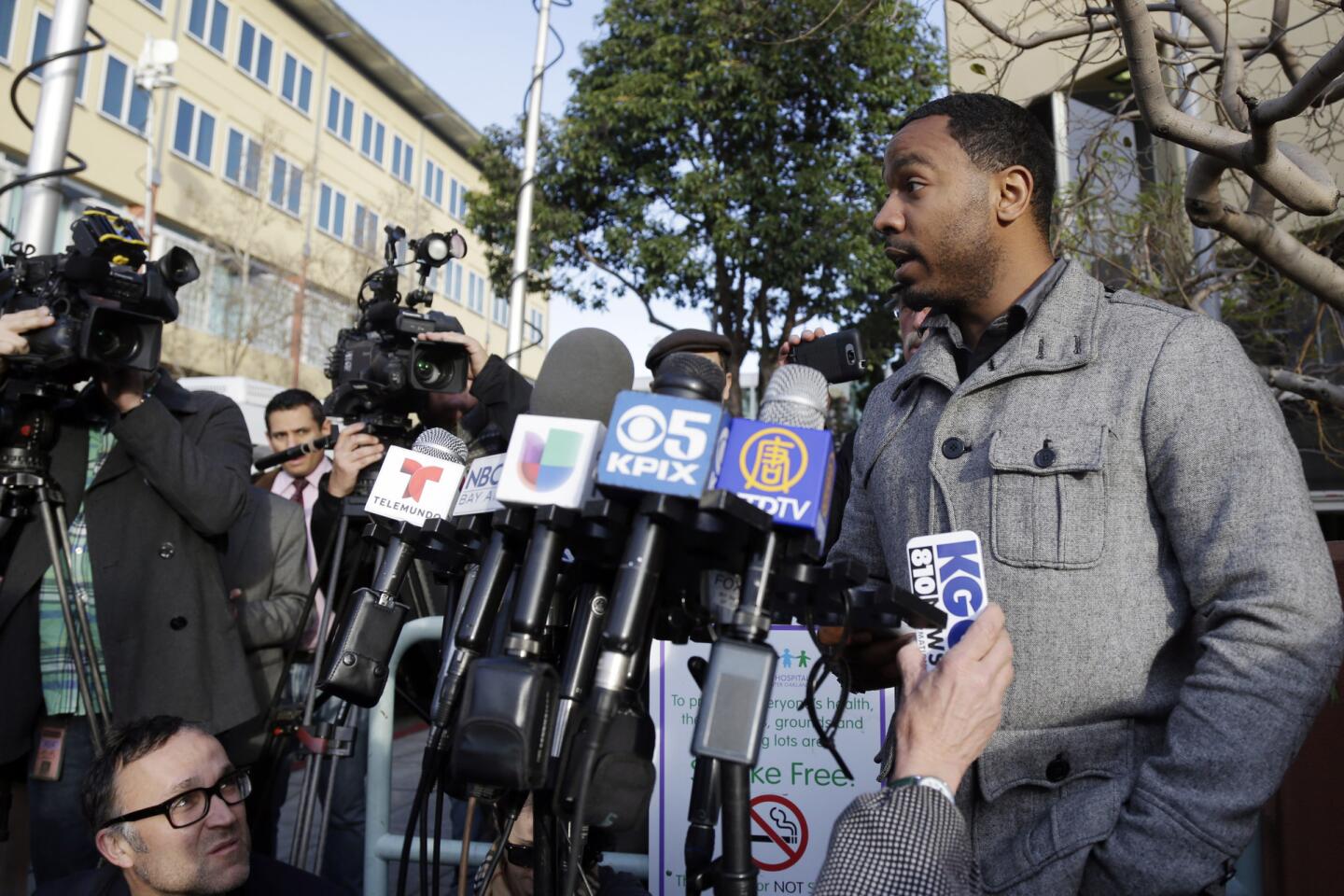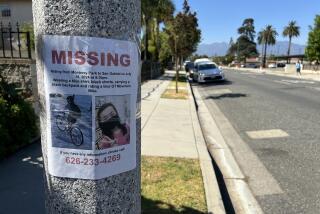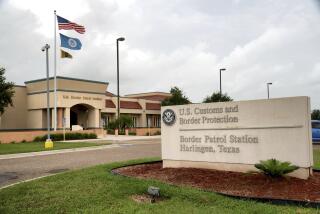Jahi McMath: Family of brain-dead girl keeping out of public view
- Share via
After waging a public battle to keep brain-dead Jahi McMath on a ventilator and then transfer her body to an undisclosed facility, the 13-year-old girl’s family has chosen to lie low and “heal up,” their attorney said.
“The family is seeking to focus attention on Jahi,” San Francisco attorney Christopher Dolan said in an interview with CNN.
Citing alleged death threats, the family has declined to say where it transferred Jahi’s body after she was released by Children’s Hospital & Research Center Oakland to the county coroner.
Dolan told CNN the family has instead chosen to lie low as it keeps vigil over Jahi. Family members need to “heal up from this whole experience” and have “some quiet time” away from media questions, he added.
Dolan helped Jahi’s family members win a court order keeping her on a ventilator, and eventually permission to transfer her to an undisclosed care facility, despite broad consensus among medical experts that the body will continue to deteriorate.
Jahi was declared brain dead Dec. 12 after surgery three days earlier to remove her tonsils, adenoids and uvula at Children’s Hospital & Research Center Oakland.
Dolan’s public comments on the state of Jahi’s body haven’t sat well with medical ethicists, who note that at least three neurologists confirmed that the girl was unable to breathe on her own and had no blood flow to her brain and that the brain showed no sign of electrical activity.
The Alameda County coroner issued a death certificate without performing an autopsy.
Bodies of the brain-dead have been maintained on respirators for months or, in rare cases, years. However, once cessation of all brain activity is confirmed, there is no recovery, Rebecca S. Dresser, professor of law and ethics in medicine at Washington University in St. Louis, told The Times.
Laurence McCullough, a professor at the Center for Medical Ethics and Health Policy at Baylor College of Medicine in Houston, told USA Today that the operators of the facility share some of the blame with Dolan for perpetuating a myth of possible recovery.
“Their thinking must be disordered, from a medical point of view,” she said. “There is a word for this: crazy.”
More to Read
Sign up for Essential California
The most important California stories and recommendations in your inbox every morning.
You may occasionally receive promotional content from the Los Angeles Times.
